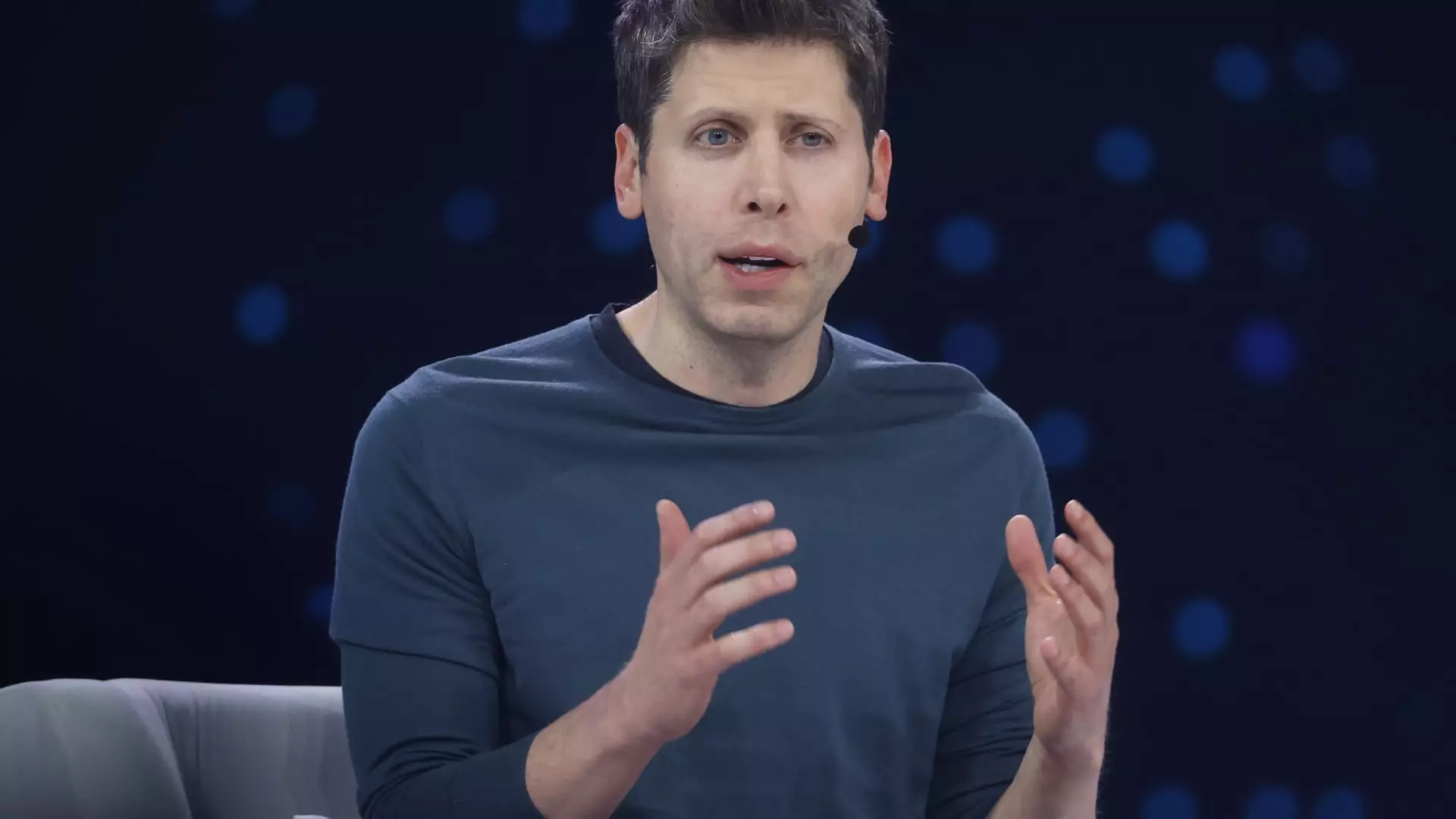In an era marked by rapid technological advancement, the recent $200 million contract awarded to OpenAI by the U.S. Defense Department isn’t just a headline—it’s a profound concern that raises questions about the moral implications of integrating artificial intelligence with military operations. This partnership isn’t about boosting administrative efficiency; it’s about harnessing AI technology for warfare and national security, which poses significant ethical dilemmas that we must confront.
The Defense Department’s announcement came weeks after OpenAI disclosed its collaboration with Anduril, a defense technology startup known for its autonomous weapon systems. The implications of such alliances are unsettling. For years, we have debated the role of technology in warfare, yet here we are, moving forward with an AI-driven paradigm that could redefine combat and surveillance without adequate public discourse. Should we allow private corporations to influence how national security is administered? There’s a profound risk in combining economic interests with military prowess.
The Narrowing of Ethical Boundaries
OpenAI’s assertion that this contract will help improve healthcare for service members and streamline administrative processes may sound innocuous, but it belies a darker potential. By blurring the lines between innovative technology and military application, we are facilitating a culture that prioritizes efficiency over ethical responsibility. Are we inadvertently endorsing a framework where technological prowess can justify the means, even when those means involve life-and-death decisions in conflict scenarios? This is a realization that should unsettle anyone who values human rights and dignity.
While Sam Altman, OpenAI’s co-founder, expresses pride in engaging with national security, one cannot overlook the fact that this engagement places technology developers in precarious positions. Ethical AI should not serve as a tool for warfare; it should enhance humanity and promote peace. The military-industrial complex has an insatiable thirst for innovation, often at the expense of moral considerations. The idea of “frontier AI capabilities” sounds groundbreaking, but when these capabilities are oriented towards national security, they risk becoming tools of oppression rather than liberation.
The Implications of Corporate Interests in Defense
The intrinsic conflict of interest becomes glaring when tech companies like OpenAI, Anduril, and others are tasked with developing systems aimed at military applications. Their focus is often profit-driven, raising questions about accountability and governance. The notion that private enterprises can influence national security protocols should alarm us all. These firms operate under principles of innovation and market competition, but when they are integrated into governmental frameworks, what happens to public accountability?
Anthropic’s partnership with Palantir and Amazon in this space raises similar concerns regarding the potential for ethical compromise. These collaborations embody a disturbing trend where powerful technological companies shape the strategies and operations of our government without adequate oversight. What accountability mechanisms exist to ensure these entities prioritize humanitarian values, especially when their primary motives often center around profitability?
Fostering a Culture of Caution
The national conversation about AI, particularly as it pertains to defense, must pivot from ignorance to a focus on ethical considerations. Civil society organizations should mobilize to scrutinize these contracts, urging transparency and accountability in how AI technologies are used. OpenAI’s potential contributions to national security should not overshadow the need for a robust ethical framework governing the use of AI in warfare.
There exists an opportunity for thought leadership in this space. As citizens and consumers, we should demand that technology serves our collective best interests, rather than aligns itself with military agendas under the pretext of supporting national health and efficiency. If the future is indeed bright with AI potential, its light should not emanate from a base of military operations, but from the shared goals of societal enhancement and global peace.
As OpenAI embarks on this new journey through its OpenAI for Government initiative, it is pivotal for citizens to remain vigilant, advocating for comprehensive guidelines that prioritize humanitarian ethics in the intersection of technology and defense. The ramifications of this ongoing experiment are far-reaching, and our collective consciousness must actively engage in shaping the narrative away from militarized AI towards one that promotes safety, security, and human dignity for all.



Leave a Reply